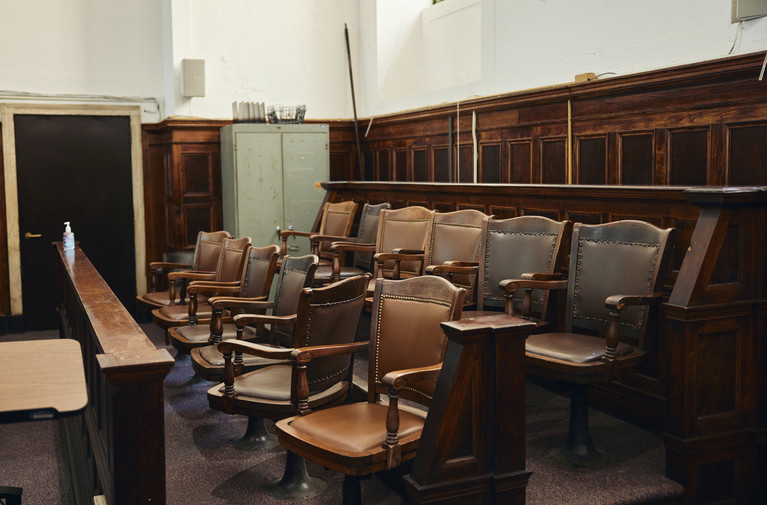Trending Topic: Evolving Interpretations of Jury Rights in Consumer Protection Cases Spark Legal Debate
Boston, MA – August 21, 2025 – A recent article published on Law.com by attorneys Massimo D’Angelo, Ofer Reger, and William M. Pekarsky from Benesch Friedlander Coplan & Aronoff has reignited discussions about the right to jury trials under Massachusetts General Laws Chapter 93A, the state’s Consumer Protection Act. Enacted in 1967 and modeled after the Federal Trade Commission Act of 1914, Chapter 93A was designed to shield consumers from unfair and deceptive business practices, providing a private right of action that includes potential treble damages and attorney fees. However, the statute’s application has led to inconsistencies in jury trial rights between state and federal courts, prompting calls for a reevaluation to ensure uniformity and fairness.
The Genesis of Chapter 93A
Chapter 93A, often referred to as the “mini-FTC Act,” prohibits “unfair methods of competition and unfair or deceptive acts or practices in the conduct of any trade or commerce.” Its broad language, as outlined in M.G.L.A. c. 93A § 2(a), has made it a cornerstone of Massachusetts civil litigation, capturing a wide array of conduct beyond traditional common-law claims like fraud or breach of contract. Unlike the federal FTCA, which relies on government enforcement, Chapter 93A empowers private individuals and businesses to sue, with Section 9 addressing consumer claims and Section 11 covering business-to-business disputes.
The act’s origins trace back to a period of heightened consumer advocacy in the 1960s, aiming to address misleading advertising, predatory lending, and other exploitative practices. Over the years, amendments have expanded its scope, including the addition of Section 11 in 1972 for business claims. Courts have interpreted “unfair or deceptive” broadly, often requiring proof of substantial injury, but the statute’s flexibility has led to its frequent use in disputes ranging from debt collection to product liability.
Jury Trial Rights: State vs. Federal Inconsistencies
A key contention in the Law.com article is the denial of jury trials for Chapter 93A claims in Massachusetts state courts, rooted in the Supreme Judicial Court’s (SJC) ruling in Nei v. Burley (1983), which held that such claims are statutory and not analogous to common-law actions entitled to jury trials under the state constitution. This stance was reaffirmed in cases like Klairmont v. Gainsboro Restaurant, Inc. (2014), where the SJC denied jury trials even for claims seeking monetary damages.
In contrast, federal courts applying the Seventh Amendment have occasionally granted jury trials for Chapter 93A claims when they resemble common-law suits. For instance, in Whitney v. Bucher Municipal North America, Inc. (August 2024), U.S. District Judge Nathaniel M. Gorton ruled that a plaintiff had a right to a jury trial for a Chapter 93A claim based on a specific regulatory violation. Similarly, in Nightingale v. National Grid USA Service Company (May 2025), Judge Gorton allowed a jury trial for a debt collection case under Chapter 93A §2 and 940 C.M.R. §7.04(1)(f), emphasizing the claim’s alignment with historical fraud actions.
This divergence has led to forum shopping, where plaintiffs prefer federal courts for jury access, potentially undermining state judicial authority. The First Circuit has yet to definitively resolve the issue, but decisions like Full Spectrum Software, Inc. v. Forte Automation Systems, Inc. (2017) suggest that claims involving deception may qualify for jury trials under the Seventh Amendment.
Arguments for Rethinking Jury Rights
The authors argue that the time has come to rethink the blanket denial of jury trials in state courts, proposing alignment with federal interpretations to reduce inconsistencies and uphold constitutional principles. They contend that many Chapter 93A claims mirror common-law torts, such as deceit or breach of warranty, which historically warrant jury trials. Granting jury rights could enhance public trust in the justice system, deter frivolous claims through community scrutiny, and prevent overburdening judges with fact-intensive disputes.
Proposals include legislative amendments to explicitly provide for jury trials or SJC reconsideration based on evolving precedents. The article highlights recent trends, such as declining enforcement actions against financial firms (down 37% in late 2024) and increased scrutiny of “junk fees” under new regulations, as opportunities to modernize the act. Critics, however, warn that jury trials could complicate proceedings and lead to inconsistent verdicts given the statute’s subjective standards.
Broader Implications
The debate over jury rights under Chapter 93A reflects broader tensions in consumer protection law, balancing efficiency with due process. As Massachusetts continues to enforce robust regulations—evidenced by Attorney General Andrea Joy Campbell’s March 2025 “junk fee” rules—the call for jury access could influence similar statutes nationwide. Legal experts on X have weighed in, with some advocating for reform to prevent “dilution through overuse” of the act, while others emphasize its role in empowering consumers.
As courts and lawmakers grapple with these issues, the genesis and evolution of Chapter 93A serve as a reminder of its foundational goal: equitable protection in an ever-changing commercial landscape. The authors’ call for rethinking jury trials may pave the way for significant reforms, ensuring the act remains a vital tool for justice.
Sources: Law.com
